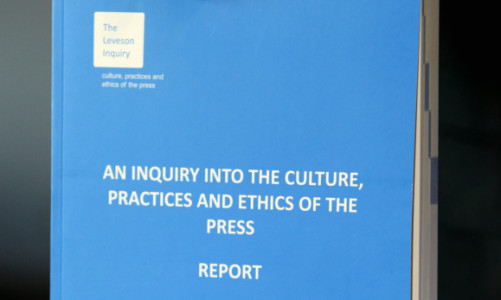The Editors’ Code of Practice committee has announced a series of initiatives to respond to the recommendations of the Leveson Inquiry.
The Editors’ Code forms the basis of press coverage by journalists and was the subject of a post-Leveson special meeting of editors last week.
The committee announced yesterday that the code’s definition of the public interest will be revised with urgency, in light of the Leveson report, to take into account the definition of the public interest published by the director of public prosecutions in his recent guidelines for prosecutors.
The committee also agreed to take up Lord Justice Leveson’s recommendation to appoint lay members.
The committee at present comprises 13 editors, plus the chairman and director of the Press Complaints Commission as observers.
In future, it is proposed the number of editors will be reduced by three, to 10, with five lay individuals including the chairman and director of the new regulator joining the committee as full members.
The committee proposes to add a new compliance clause to the Editors’ Code.
Under this clause, all editors must offer readers a clear and effective means of making complaints and publish corrections and apologies promptly, preferably without recourse to the new regulator.
In cases where it is not possible to reach agreement by negotiation, the clause will make clear that editors will have to publish adjudications and approved corrections and apologies, in positions required by the regulator.
The committee will also, as recommended by Lord Justice Leveson, undertake a review of the code.
It will invite suggestions from the public and, for the first time, newspapers and magazines will be encouraged to urge their own readers to contribute.
At the same time, the committee will review the Editors’ Codebook to ensure, in the light of the Leveson report, that it gives editors and journalists the best possible guidance on good practice.
Announcing the proposed changes, code committee chairman Paul Dacre said: “Lord Justice Leveson recognised in his report that the Editors’ Code was praised by witnesses to his inquiry.
“He also recommended improvements and the committee is determined to meet this challenge as promptly and positively as possible.”
